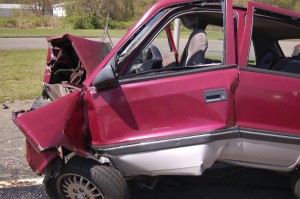You were minding your own business, doing what you normally do and just out of the blue, someone injured you. Now you have medical treatments, diagnostic testing, missed work, and family stress to top it off. What do you do?
Get Medical Treatment As Soon As Possible
Sometimes, depending on the type of injury you have suffered it may take some time for your symptoms to appear. However, you are better off seeking medical treatment as soon as you can after the incident. It is better to get checked out and let the doctor call you crazy than take the chance of waiting too long. “Sooner rather than later” is the motto.
Should I Give a Statement to the Insurance Adjuster?
In most situations, you are better off not giving a detailed statement until you have talked with a personal injury attorney. The reason for this is that insurance adjusters are trained to talk you in circles hoping you will misstate something. The insurance company can then use a recorded statement containing the misstatement in an effort to deny your claim or reduce or damages. Most personal injury lawyers would probably advise against giving a recorded statement. This issue also can come up in assessing whether you are at fault under the doctrine of “contributory negligence.”
Your Credibility is Most Important
If you are claiming that someone acted negligently – you must be able to prove that they caused your injuries. You should keep records of your medical treatment and the expenses involved. You should always try to take pictures so that you can better describe what happened if needed. Taking notes, if you are able, is also a good idea. An insurance company or jury are more likely to believe what you say about the accident if you can support your statement with proof. Juries and judges need a reason to believe you other than “he or she seems like a nice person.” Please remember to collect the following if possible:
- Pictures
- Documents
- Police report number
- Police officer’s badge number
- Weather and traffic conditions
- Witnesses’ contact info
Are You at Fault?
Under North Carolina law, if the injured person is in any way at fault for their injuries, this can prevent you from recovering damages. This is the concept of contributory negligence.
Damages and Evidence = $
The more damages you have and the more evidence you have of your injury, then the more your case will be worth. If you have been injured by someone’s conduct, you are not at fault, and able to prove your case thru evidence – the following damages could be recovered:
- Medical bills
- Lost earnings or income
- Damaged clothing
- Pain and suffering
Types of Personal Injury Cases
- Car accidents
- Truck accidents
- Motorcycle accidents
- Pedestrian accidents
- Slip and Fall accidents
Greg Kornegay
Personal Injury Attorney Wilmington NC
(910) 763-5757
Toll Free: 866-579-5757
[email protected]
Accident Injury Evaluation Form


 Gregory Kornegay,
Gregory Kornegay,
